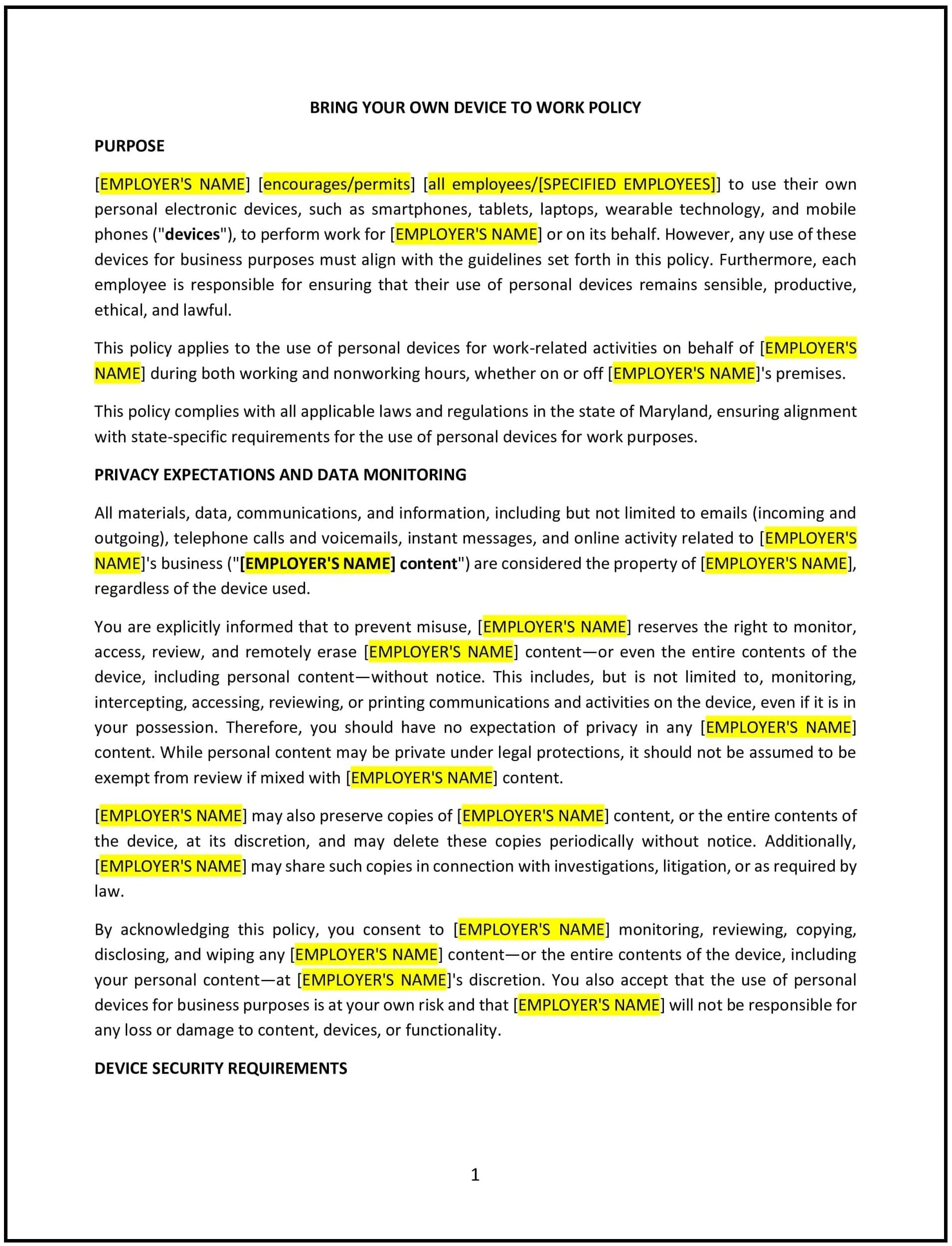Bring your own device to work policy (Maryland): Free template
Got contracts to review? While you're here for policies, let Cobrief make contract review effortless—start your free review now.

Customize this template for free
Bring your own device to work policy (Maryland)
This bring your own device (BYOD) policy is designed to help Maryland businesses manage the use of personal devices, such as smartphones, laptops, and tablets, for work purposes. It outlines expectations for security, usage, and privacy to balance employee convenience with organizational security needs.
By implementing this policy, Maryland businesses can enhance flexibility for employees while mitigating risks associated with personal device usage in the workplace.
How to use this bring your own device to work policy (Maryland)
- Define scope: Specify the types of personal devices covered under the policy, such as smartphones, tablets, and laptops.
- Establish usage guidelines: Outline acceptable use of personal devices for work-related tasks, including restrictions on accessing or sharing sensitive information.
- Address security requirements: Require employees to implement security measures, such as strong passwords, encryption, and regular software updates.
- Protect business data: Include protocols for separating work and personal data to prevent unauthorized access or data loss.
- Include privacy provisions: Explain how the business will respect employees’ privacy while maintaining oversight of work-related data.
- Detail reimbursement: Clarify whether the business will reimburse employees for expenses related to device usage, such as data plans or software purchases.
- Provide IT support boundaries: Define the level of IT support available for personal devices and any associated limitations.
- Review consent: Require employees to agree to the BYOD policy before using personal devices for work.
Benefits of using this bring your own device to work policy (Maryland)
Implementing this policy offers Maryland businesses several advantages:
- Increases flexibility: Allows employees to use familiar devices, improving productivity and job satisfaction.
- Reduces costs: Minimizes expenses related to purchasing and maintaining company-owned devices.
- Protects data security: Establishes clear protocols for safeguarding sensitive business information.
- Balances privacy: Respects employees' personal data while maintaining control over work-related information.
- Promotes consistency: Provides a structured approach to managing personal devices in the workplace.
Tips for using this bring your own device to work policy (Maryland)
- Communicate expectations: Share the policy during onboarding and regularly remind employees of its requirements.
- Train employees: Provide guidance on implementing security measures, such as installing antivirus software and using secure Wi-Fi connections.
- Monitor risks: Periodically assess potential vulnerabilities associated with BYOD practices and address them proactively.
- Limit data access: Use technology solutions like mobile device management (MDM) to control access to sensitive business data.
- Regularly review the policy: Update the policy as needed to reflect changes in technology or Maryland workplace practices.